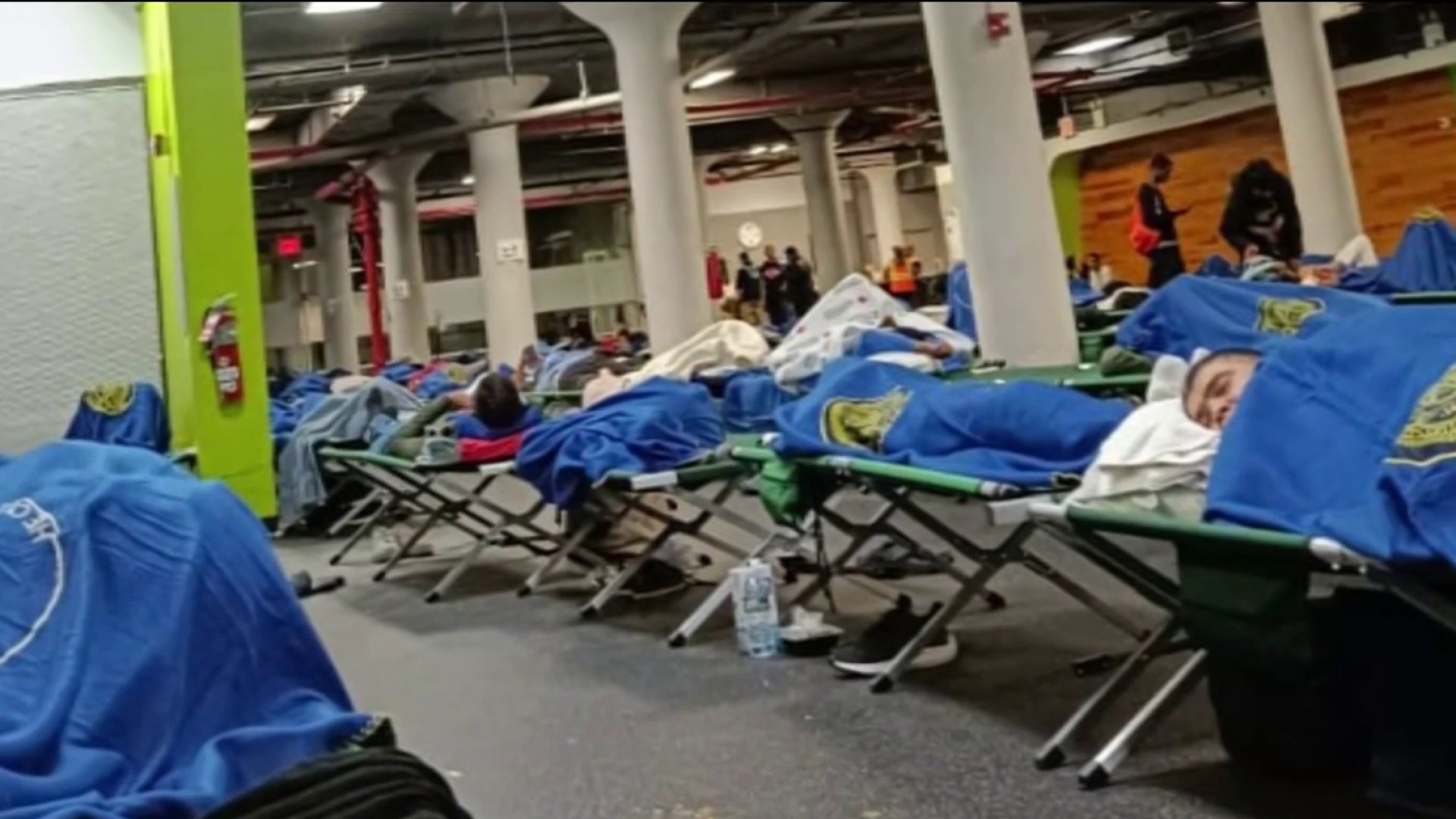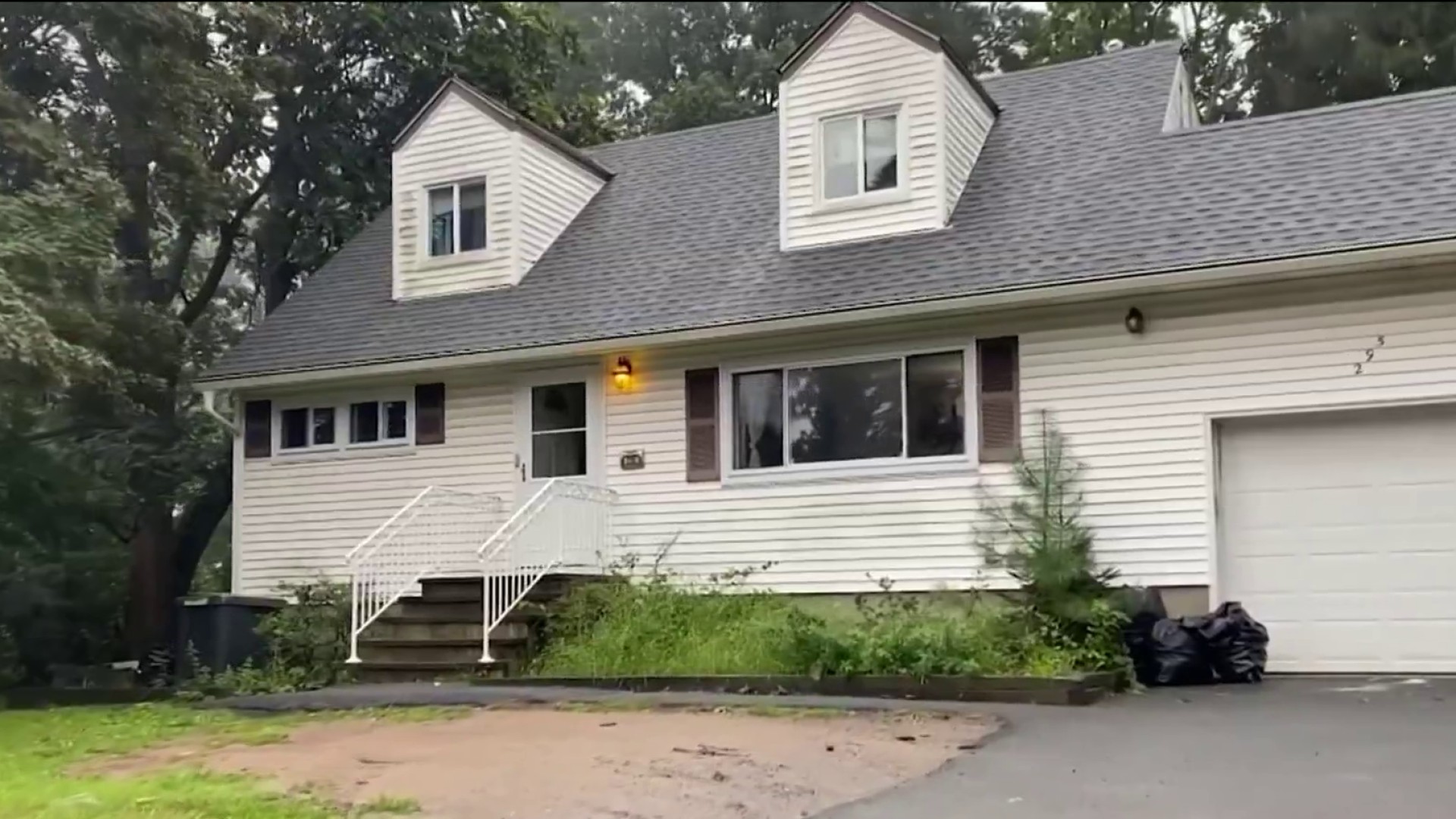What to Know
- New York City Mayor Eric Adams was set to lead a group of big-city mayors to Washington, D.C., to speak with the White House and others regarding the ongoing migrant crisis, but abruptly canceled his plans early Thursday and returned to NYC
- A spokesperson for the mayor said Adams was "returning to New York City to address a matter."
- In an exclusive interview with NBC New York, Adams had said he and the mayors of the other cities — Chicago, Denver, Houston and Los Angeles — would meet with federal lawmakers to help them develop a plan to manage the surge of migrants they say are arriving with little to no coordination, support or resources from President Joe Biden's administration.
New York City Mayor Eric Adams abruptly canceled meetings in Washington, D.C. where he was planning to meet with a group of mayors from the largest U.S. cities and the White House regarding the ongoing migrant crisis.
Adams arrived in Washington and then shortly thereafter was back on a plane to New York City.
The mayor was set to meet with senior White House officials and members of the U.S. House and Senate.
"The mayor is returning to New York City to address a matter. These meetings will be rescheduled as soon as possible," a spokesperson for the mayor told NBC New York.
No additional information about the mayor's change in plans was immediately available.
Get Tri-state area news delivered to your inbox. Sign up for NBC New York's News Headlines newsletter.
In an exclusive interview with NBC New York on Wednesday, Adams said he and the mayors of the other cities — Chicago, Denver Houston and Los Angeles — would meet with federal lawmakers to help them develop a plan to manage the surge of migrants they say are arriving with little to no coordination, support or resources from President Joe Biden's administration.
"This is an unsustainable crisis that is man-made, and we need to come up with real solutions," Adams told News 4. "This is not sustainable…we need to all have the same voice that this should not be happening to the city of New York."
The Democratic leaders said in a letter obtained by The Associated Press on Wednesday that while they appreciate Biden's efforts so far, much more needs to be done to ease the burden on their cities.
"We must secure our borders and ensure whoever is coming across, they go through the proper vetting and ensure we do a decompression strategy to go to the over 108,000 cities, villages and towns in our country so that it does not focus on just a few cities in this country," Adams said. "Mayors across the country, they’re joining me with this. This is the type of bipartisanship we need to address these issues."
Migrants are sleeping in police station foyers in Chicago. In New York, a cruise ship terminal was turned into a shelter. In Denver, the number of migrants arriving has increased tenfold and available space to shelter them has withered. With fewer available work authorizations, these migrants cannot find work that would allow them to get into proper housing.
Denver Mayor Mike Johnston, who is helping lead the coalition, said nearly every conversation he has had with arriving migrants is the same: Can he help them find a job, they ask.
“The crisis is we have folks here who desperately want to work. And we have employers here who desperately want to hire them. And we have a federal government that’s standing in the way of employers who want to hire employees who want to work,” Johnston said.
Also signing on were the mayors of the three of the country’s other largest cities: Karen Bass of Los Angeles, Brandon Johnson of Chicago and Sylvester Turner of Houston.
The situation at the U.S.-Mexico border has vexed the Democratic president, who is seeking reelection in 2024. He is increasingly under fire from members of his own party who are managing the growing number of migrants in their cities. Republicans claim Biden is soft on border security and is allowing too many people to enter the United States.
He has responded by toughening rules at the border meant to curb illegal crossings and by offering work authorizations and other incentives to those who come to the U.S. legally — applying ahead of time and arriving by plane.
“We’re committed to supporting local jurisdictions that are hosting migrants that have recently arrived into the country. We’re going to continue to deliver support every way that we can," said Emilie Simons, deputy White House press secretary.
Simons said the administration is already working to reduce to 30 days the time it takes to get arriving migrants through the system.
The White House said it has entered into a partnership with New York City on a work authorization clinic where up to 300 migrants per day can come in to submit work permit applications.
The reason for the ballooning number of migrants in these cities is complicated, but economic and climate-related hardships in their home countries are key drivers. There are increasing numbers of families arriving and asking for asylum.
Some conservative-leaning states have sent migrants to so-called sanctuary cities such as New York or Chicago, where laws are more favorable to noncitizens. But that alone does not explain why the cities are facing such increases.
In years past, when migrants arrived, they would be released and picked up by nonprofit groups before usually going to stay with a relative already in the U.S. But the nationalities of the people arriving have changed, and many no longer have any place to go.
Winning asylum is a long and difficult process through a badly clogged immigration court system. In some cases, migrants may wait up to a decade for a court date. They are released into the U.S. to wait. Some are eligible to work, but such authorizations are badly delayed. There are concerns, too, that allowing too much work authorization will encourage more people to make the dangerous journey to the U.S. on foot. So thousands are in limbo, unable to work, sleeping in shelters or government facilities.
Biden has requested $1.4 billion from Congress to help state and local governments provide shelter and services for migrants, after earlier pleas from Democratic mayors and governors.
Johnston and the other mayors say in their letter that more is needed, and they are asking for $5 billion.
"While we are greatly appreciative of the additional federal funding proposed, our city budgets and local taxpayers continue to bear the brunt of this ongoing federal crisis," the letter says. “Cities have historically absorbed and integrated new migrants with success."
Denver is spending $2 million a week on sheltering migrants. New York has surpassed a total of $1.7 billion and Chicago has spent $320 million, according to the letter.
We’re committed to supporting local jurisdictions that are hosting migrants that have recently arrived into the country.
Emilie Simons, deputy White House press secretary
“Our cities need additional resources that far exceed the amount proposed in order to properly care for the asylum seekers entering our communities," the mayors' letter says. "Relying on municipal budgets is not sustainable and has forced us to cut essential city services.”
The mayors also want an accelerated work authorization approval process so migrants can find work.
“We are extremely appreciative of the work the Biden-Harris administration has done in expanding work authorization and providing funding for this mission, but we need to go one step further to ensure we continue to meet the moment and provide care for new arrivals,” Johnson's office said in a statement.
The cities are full of people who have applied, but there are delays of six months or more. The mayors also are pushing to expand authorizations so anyone released into the U.S. would become eligible to find work while they wait for their immigration cases to play out.
Lastly, they are asking for the administration to create a regional migrate coordinator who would work with the federal government, nonprofits and state and local officials. The aim is to better coordinate and place migrants in areas where there is capacity for them.
It’s unclear whether Congress, including the Republican-controlled House, will pass any of the funding Biden has requested, let alone a increase for local support.
“We think there is a real commonsense path here that and that’s why we thought it was important,” Johnston said.




